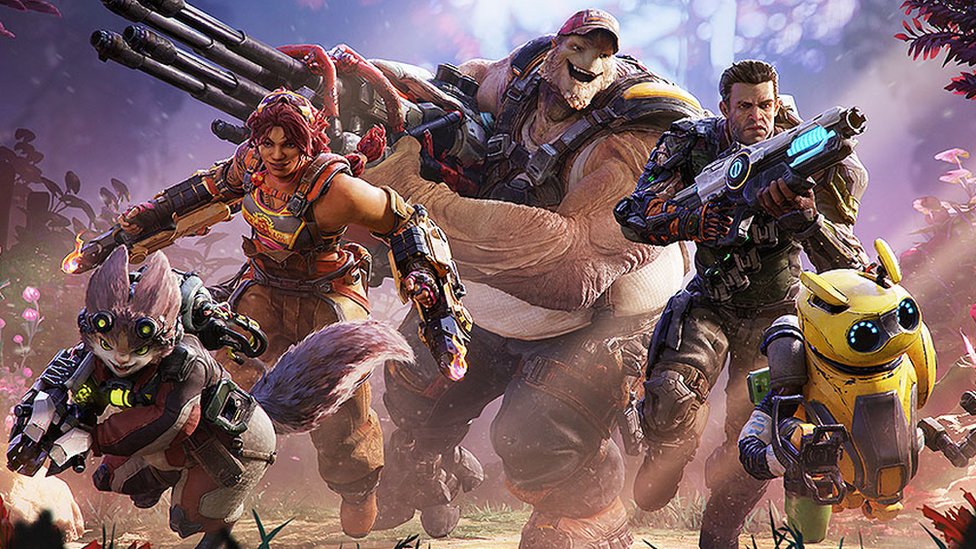There’s no denying that video games have emerged as an integral part of millennial lifestyles. This might be because they allow the gamer to guide an alternate existence full of adventure and challenges. Gaming is an international enterprise these days- a $60 billion one.
 In 2010, a video game distributor in Brazil revealed that a game localized into Portuguese accelerated its sales 15 times! This underlines the importance of online game localization and emphasizes the best translation and localization. Despite the significance of game localization, organizations make the error of choosing shoddy shortcuts, which can be steeply-priced to restore, carry awful publicity, and hurt sales.
In 2010, a video game distributor in Brazil revealed that a game localized into Portuguese accelerated its sales 15 times! This underlines the importance of online game localization and emphasizes the best translation and localization. Despite the significance of game localization, organizations make the error of choosing shoddy shortcuts, which can be steeply-priced to restore, carry awful publicity, and hurt sales.
What are the localization errors that gaming businesses make?
#1. Cutting corners on translation
Many online game corporations assume that they’ve saved a dollar by going in for system translations or considering the most inexpensive translation option in preference to the first-rate. Machines are far from producing the accuracy needed. Translation equipment can also be a safety risk by providing access to online game content material to hackers throughout the Internet.
Also, anything typed in for translation is passed over to the translation device company: it becomes their data; they could do anything they need to with it. Translation desires now to be accurate and keep the taste and nuances of the original to breathe lifestyles into the translated model. Mistranslation could make the sport a frustrating reveal for the player or make the developer a laughing stock of the gaming global; within the worst-case state of affairs, it can land the developer right into a criminal soup.
READ MORE :
- 10 Reasons to Use Apple Computers
- So You Want to Make a Lot of Money on the Internet
- Searching for Reconditioned Mac Laptops
- How to Get Free Gadgets From the Internet
- Commercialization of Higher Education in South Africa
Cutting corners on translation adds to the work and the cost. The practical factor could be to use professional translation services thath are not simply competent and creative butr discreet. Making the translation enterprise sign a non-disclosure agreement can assist the developer of the sport in loosening up even as the localization goes on properly in expert palms.
#2. Challenging coding textual content into center documents
This is something that video game builders with confined imaginative and prescient do. It is a mistake to embed textual content like the menu text, recreation’s title, and on-display, published talk into core recreation documents. Suppose the text is saved in a separate helpful resource record. In that case, it will be clean to comprise a translated model by including a new variable and providing the interpretation in a separate committed report. Much less complicated than digging via source code during translation?
#3. Painting all recreational textual content with an equal brush
Some games contain specialized terminology. Take sports video games; football terminology is different from basketball-tall speak. Translators and localizers for such games want to perform a little research. The need here is for “studies-oriented textual content.” Games like the famous and addictive Candy Crush give you new gaming principles. Such games are slotted as needing “creative-oriented textual content.” Game builders have to examine their sports content and determine which category of textual content is suitable. The text should be tailor-made to the content, and the translator’s portfolio must match this need.
#4. Out-of-context recreation localization
Indeed, there’s little to be won by turning in-text reams to translators and localizers who recognize little about the game or its content. Worse, nevertheless, is expecting someone with no gaming concept to deal with the process! When game localization is significant, the more the translator knows about the sport, the higher the outcome. Translators must be endorsed to play the sport being developed. Discretion and safety are non-negotiable necessities of direction.
#5. Ignoring Cultural Factors
Each marketplace is steeped in its unique culture. Cultural sensitivity is essential while localizing a sport, or the developer will risk alienating target audiences. This isn’t always about accurate sports content, like the tale, characters, conditions, and occasions.
Consider the subsequent:
A gaming giant needed to remember seventy-five 000 copies of a video game that used the chanting of the Quran in its soundtrack after a person objected. The depiction of Japanese armies invading South Korea may be a slice of the record, even though Seoul was offended by using a game that confirmed that.
Localization misdemeanors can vary from showing alcohol to displaying blood and gore on display. While localizing, video game builders will do themselves a favor by thoroughly reviewing the target marketplace. Cultural gaffes aren’t to be taken gently, and the unfavorable exposure surrounding them can kill the sport if it is no longer the developing agency.






